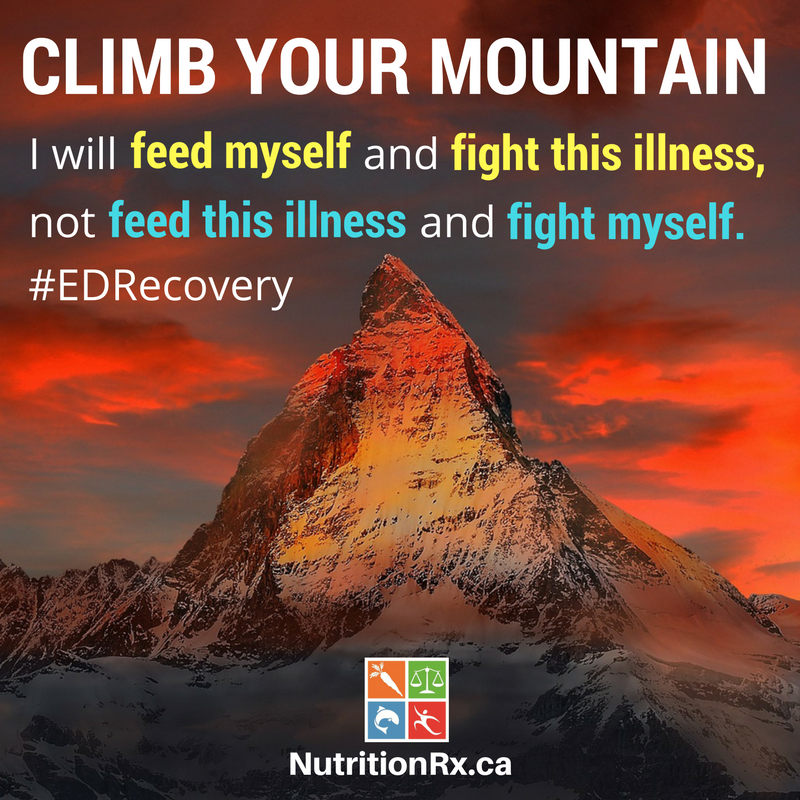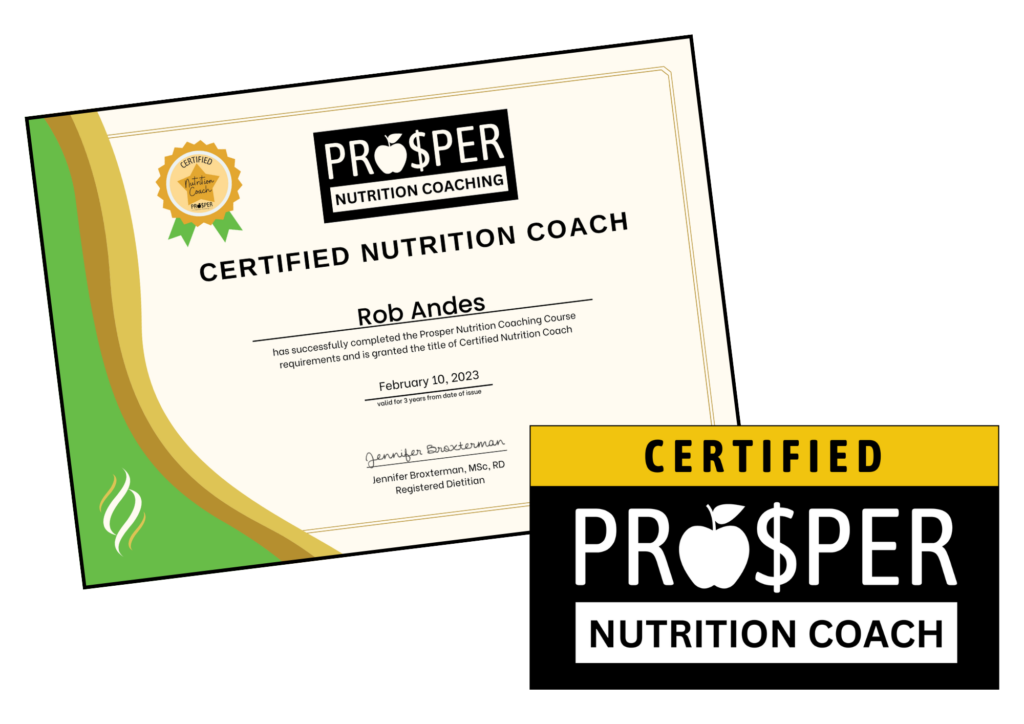

Eating Disorder Recovery: Why Am I So Hungry?
Eating Disorder Recovery: Why am I so HUNGRY all the time?
Written by Jennifer Broxterman, MSc, RD
Registered Dietitian, Founder of NutritionRx

So you’re on the path to healing your relationship with food. You’re eating more than you have in years, you’re still terrified of gaining a ton of weight by letting yourself eat more food, and yet you’re feeling hungry all the time. Ravenous in fact.
“I’m eating 3,000 calories a day, and I’m still hungry.”
As a Registered Dietitian who specializes in ED recovery, I have frequently heard stories like the latter. And I’m here to tell you this is normal.
The process your body is going through is similar to what happens after a major surgery.
Many people who have surgery find they lose weight after surgery even though they’re eating normally and are probably exercising less, if at all. Their body is basically starving for nutrients so it can heal itself, so it doesn’t have the luxury of storing additional fat.
The same is true if your body is trying to heal a wound.
I have a good friend who was a high level athlete at the time and was run over by a car and ended up with a massive foot wound. She continued to eat normally and continued to train in a modified capacity, yet she kept losing weight—a total of 15 pounds in the four months it took her wound to heal. At the same time, she also lost her period. Once again, it was her body’s way of putting all its energy into healing the wound, which was her body’s number one priority.
Overcoming a Serious Caloric Debt
When it comes to recovering from an ED, it’s a lot like repaying a serious caloric debt, similar to recovering from a MAJOR financial crisis that’s pushing you towards bankruptcy and threatening to ruin everything good in your life.
Your body is $100,000+ in the hole nutritionally, and now eating normally again puts your body into a debt repayment process—aka healing process—which involves regrowing lean muscle mass and healing organs that have been damaged from months or years of starvation. This process is very energy intensive, which paradoxically may stop you from gaining much weight even though you’re now allowing yourself to eat significantly more food, all the while making you feel much, much hungrier!
Waking up your hunger cues:
Chances are your hunger and fullness cues were blunted for so long as a protection mechanism.
What do you mean protection mechanism?
Let’s look back to our ancestors. In the hunter gatherer days, it was common to go hungry sometimes. And feeling hungry to the point of being famished can be incredibly distracting: It’s all you think about, and it can lead to serious anger (today we call it being hangry). So basically, with prolonged hunger, the body steps in as a survival instinct to stop you from feeling so overwhelmingly hungry so that it doesn’t distract you from what’s most important, finding food and fighting to survive.
If you’ve engaged in self-starvation for some time, it’s possible you no longer feel hunger or fullness signals at all, because your brain got really good at blunting them. Maybe you experienced trembling hands or headaches, but you likely didn’t associate that with hunger.
Here’s the good part:
Experiencing more hunger than you expect is a good thing. It means your body is starting to heal the damage you did to your brain, liver, digestive system etc., and that you’re on your way to regaining your health.
Bottom line:
Be patient. Depending on the history and severity of your disordered eating, it could take a year, or even a few years, for your hunger and fullness signals to restore themselves, and for you to feel healthy again.
You’re not damaged goods:
The good news is, you’re never too broken to be fixed, and with time, patience, enough good nutrition, rest, and self-care, your body will work hard to make you healthy and whole once again. I’ve seen it happen more times than I can count, and it’s truly one of the most rewarding parts of my job.
If you have been struggling with disordered eating for some time on your own, we’re here to help if you’re ready to take that first step to get better and leave your unhealthy relationship with food behind you.
Learn more about the way we approach ED recovery here: https://nutritionrx.ca/eating-disorders/
Wishing you health & happiness,
♡ Jen
Jennifer Broxterman, MSc, RD
Registered Dietitian
NutritionRx: happy, healthy living with our team of Registered Dietitians
Prosper Nutrition Coaching: a world-class nutrition coaching certification
+
+
+
Want to work with a NutritionRx Registered Dietitian?
Learn more here: Nutrition Packages & Rates
+
+
+
Want to become a Certified Nutrition Coach?
Learn more about our habits-based Prosper Nutrition Certification



